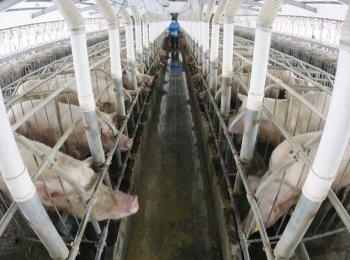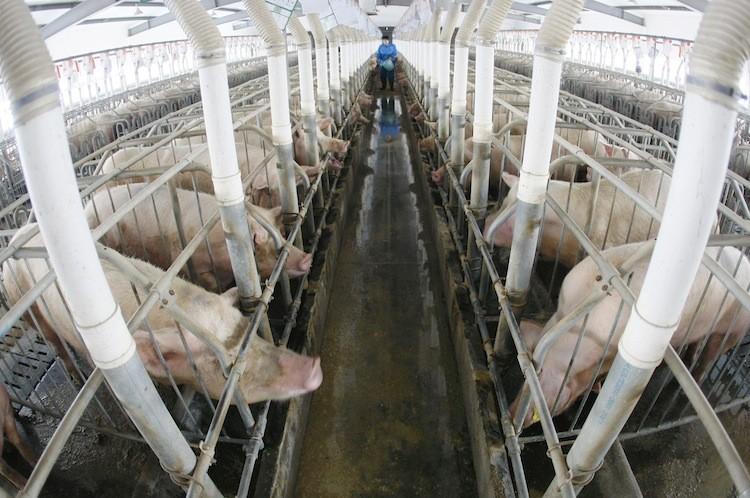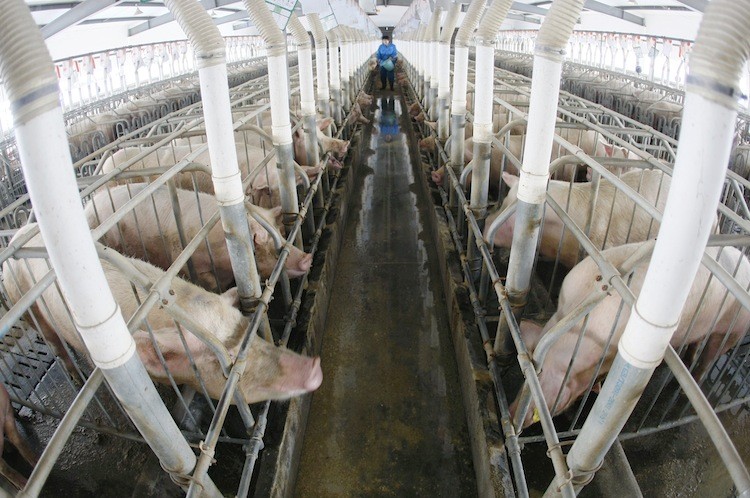Chinese Pigs Fed Poisoned Milk Powder
An investigation by Chongqing Evening News says that, because of the cost and scarcity of sows’ milk, in some large-scale pig farms piglets are fed on milk powder to improve their nourishment.

Pigs stand in their pens at a farm in Zhuji, east China's Zhejiang province last March. In a recent report it was found that farms were feeding contaminated milk powder to pigs which contained melamine. STR/AFP/Getty Images
|Updated:


